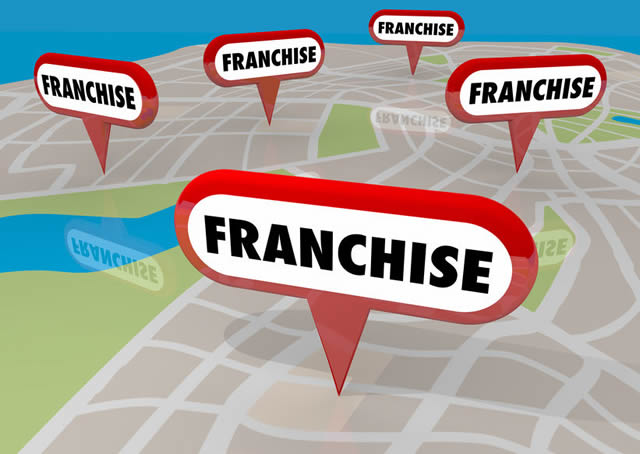The dream of business ownership is a powerful one, offering the promise of financial independence, creative control, and a legacy built on your own hard work. However, the reality of starting a business from scratch is daunting, with high failure rates and immense risk. For countless aspiring entrepreneurs, there is a powerful and increasingly popular alternative: franchising. A franchise offers a proven system, a recognized brand, and a built-in support network that can significantly increase your chances of success. It’s a model that allows you to be an entrepreneur without having to reinvent the wheel.
But with thousands of franchise opportunities on the market, how do you find the right one? The choice you make is a major financial and personal commitment that will shape your future for years to come. This comprehensive guide will serve as a roadmap to navigating the world of franchising, detailing the key steps to take, the critical questions to ask, and the top industries poised for massive growth in 2025 and beyond. By the end, you will have a clear framework for making a smart, informed investment.
The Franchise Model

Before you start looking at specific brands, it’s essential to understand the fundamental mechanics of the franchise model. It’s a unique partnership that comes with both distinct advantages and a few important trade-offs.
- A. What is a Franchise? At its core, a franchise is a license. As the franchisee, you are purchasing the right to use a well-established brand name, a proven business model, and the proprietary systems of the franchisor. You pay an initial franchise fee and ongoing royalties and marketing fees in exchange for the right to operate your own business under their brand.
- B. The Pros of Franchising: The benefits of a franchise are compelling, especially for a first-time business owner.
- A Proven Business Model: You are buying into a system that has already been tested, refined, and proven to be successful. The franchisor has already made the costly mistakes, allowing you to bypass a significant part of the learning curve.
- Brand Recognition: The biggest advantage is a recognizable brand name. You don’t have to spend years and millions of dollars building a reputation; the brand already has a loyal customer base and a strong market presence.
- Established Supply Chains and Systems: Franchisors have already negotiated favorable rates with suppliers and have established efficient operational systems. This means you have access to a reliable supply of materials and a streamlined workflow from day one.
- Ongoing Support: You are not in this alone. A good franchisor provides training, marketing support, and ongoing operational assistance to help you succeed.
- C. The Cons of Franchising: While the advantages are clear, franchising is not without its trade-offs.
- Franchise Fees and Royalties: You must pay an initial franchise fee and a percentage of your revenue as ongoing royalties. This can significantly eat into your profit margins, and you are required to pay it even if your business is struggling.
- Lack of Creative Freedom: As a franchisee, you must adhere to a strict set of rules and guidelines. You are not allowed to change the menu, the marketing, or the operational processes. You are buying a system, not a blank canvas.
- Strict Rules and Regulations: The franchise agreement is a legally binding document that governs every aspect of your business. Violating these rules can lead to serious consequences, including the termination of your agreement.
- D. The Financial Commitment: The costs associated with a franchise are more complex than a simple price tag. You must budget for the following:
- Franchise Fee: A one-time fee paid upfront for the right to join the franchise system.
- Initial Investment: This includes the cost of setting up your location, buying equipment, and covering initial operational expenses.
- Royalties: An ongoing percentage of your gross revenue paid to the franchisor on a regular basis.
- Marketing Fees: A separate fee that goes into a collective fund for national and regional marketing efforts.
The Path to Ownership
Buying a franchise is a major decision, and doing your homework is the single most important step you can take to ensure your success. This process is known as due diligence, and it is your roadmap to a smart investment.
- A. The Self-Evaluation: Before you even look at a single franchise, you must first look inward. Ask yourself these questions:
- What are my skills? Am I a natural leader, a meticulous manager, or a sales guru?
- What are my interests? What industry do I feel passionate about?
- What is my financial capacity? How much capital do I have to invest, and how much risk can I afford?
- Am I a good fit for a franchise? Am I someone who can follow a proven system, or do I need the freedom to innovate?
- B. Researching the Industry: A good franchise is in a growing and stable industry. You should spend a significant amount of time researching market trends, understanding your target customers, and analyzing the competition. Look for industries that are resistant to economic downturns and that are in line with modern consumer demand.
- C. The Franchise Disclosure Document (FDD): This is the single most important document you will receive. It is a legally required document that the franchisor must provide to you at least 14 days before you sign the franchise agreement. The FDD is a comprehensive roadmap that details everything you need to know about the franchise.
- What to Look For: The FDD is organized into 23 items. You must pay close attention to the financial performance of the franchise (Item 19), the franchisor’s litigation history (Item 3), and the contact information for current and former franchisees (Item 20).
- D. Talking to Current Franchisees: The most valuable insight you will get is from people who are already in the system. The FDD will provide you with a list of current and former franchisees. You should call as many of them as possible and ask the hard questions.
- The Golden Questions:
- “Are you profitable?” and “How long did it take to reach profitability?”
- “What is the franchisor’s support really like? Do they respond quickly and effectively?”
- “What are the biggest challenges you face?”
- “Knowing what you know now, would you do it again?”
- The Golden Questions:
- E. The Financial Analysis: A franchise can look great on paper, but the numbers must make sense. You should carefully analyze the costs in the FDD, paying close attention to the royalty and marketing fees. You must also create a detailed financial projection for your first 1-3 years in business, a process that should be done with a qualified accountant.
Top Industries for a Franchise Investment

The economic landscape is always shifting, and some industries are better positioned for growth than others. The following are a few of the top industries poised for a strong performance in 2025 and beyond.
- A. Food and Beverage: The food industry is evergreen. People will always need to eat, and the demand for convenient, quality food is constant. While a full-service restaurant can be risky, the franchise model excels in the fast-casual and quick-service space.
- Sub-sectors to Watch: Fast-casual dining is a major growth area. People are looking for healthier, higher-quality food that is still served quickly. Coffee franchises and food delivery concepts are also excellent opportunities, as they are a part of a daily routine for millions of people.
- B. Health and Wellness: The world is becoming more health-conscious, and people are willing to spend money on their well-being. This is a booming industry that is resistant to economic downturns.
- Sub-sectors to Watch: The fitness industry, with franchises for boutique gyms and specialized fitness studios, is thriving. Senior care franchises are a major growth area due to the aging population. Franchises for wellness spas, massage therapy, and nutritional counseling are also excellent opportunities.
- C. Home Services: This industry is often considered recession-resistant. When the economy is down, people tend to repair what they have rather than replace it. When the economy is up, they have more disposable income to spend on home improvements.
- Sub-sectors to Watch: Franchises for cleaning services, lawn care, home repair, and handyman services are always in demand. The need for these services is constant, and the business model is often low-overhead and highly scalable.
- D. Child Services and Education: Parents are always willing to invest in their children’s future. The demand for high-quality childcare, tutoring, and educational services is a constant and growing market.
- Sub-sectors to Watch: Franchises for early education centers, tutoring services, and specialized academic programs are a great investment. The business model is often based on recurring revenue and has a high degree of customer loyalty.
- E. Technology and Business Services: In today’s digital world, every business is a tech business. The need for specialized IT services, digital marketing, and business consulting is a major growth area.
- Sub-sectors to Watch: Franchises that provide IT support for small businesses, digital marketing services, or business coaching are excellent opportunities. They are low-overhead, highly scalable, and are in constant demand from companies that need to compete in a digital economy.
The Future of Franchising
The franchising world is not static. It is constantly evolving to meet the needs of a changing economy and a new generation of entrepreneurs. The future of franchising is a blend of technology, sustainability, and a new focus on low-cost, scalable models.
- A. The Rise of Micro-Franchises: The trend is moving towards low-cost, home-based franchises that require a minimal initial investment. These “micro-franchises” are making business ownership more accessible to a wider range of people.
- B. Technology Integration: Franchisors are using technology to provide better support to their franchisees. AI-powered analytics can help a franchisee make better business decisions, and a smart point-of-sale system can provide real-time data on sales and inventory.
- C. A Focus on Sustainability: Modern consumers are increasingly demanding businesses that are committed to sustainability. Franchises that offer eco-friendly products or services, or that have a clear commitment to environmental responsibility, are gaining a competitive advantage.
Conclusion
The decision to buy a franchise is a major one, but it is a choice that can be a powerful vehicle for achieving your goals. A franchise is not a shortcut to success. It is a partnership—a marriage of a proven, successful system and your own hard work, dedication, and entrepreneurial spirit. The dream of business ownership is within your reach, but it requires a commitment to a diligent and thorough process.
By doing your homework, carefully analyzing the FDD, and talking to current franchisees, you can significantly reduce your risk and increase your chances of success. By choosing a field that you are passionate about, and an industry that is poised for growth, you are providing yourself with a strong foundation for a fulfilling and profitable career. Remember that the initial investment and the ongoing fees are not just expenses; they are the price of a blueprint for success. So, take that first step. Do your research, find your passion, and embark on a journey that could change your life.












